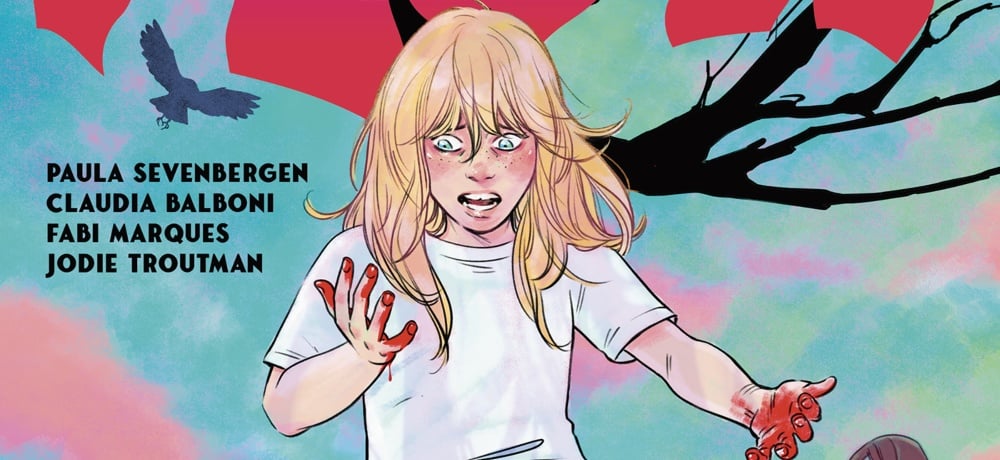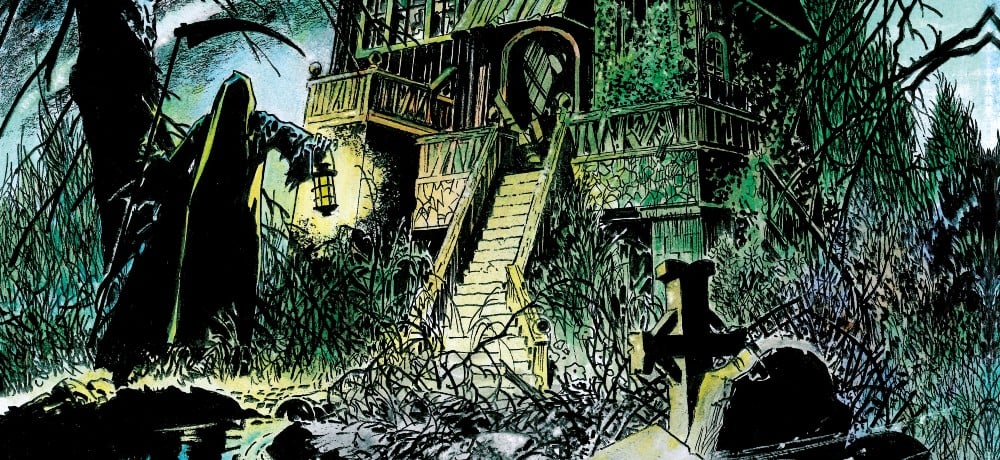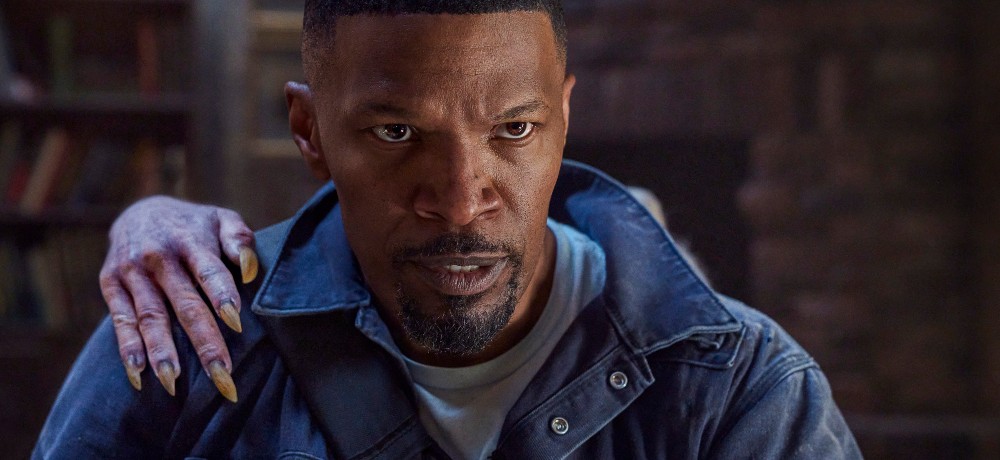






Arriving on Netflix this Friday, August 12th, is J.J. Perry’s Day Shift, a kickass horror/action/comedy hybrid that stars Jamie Foxx as a vampire hunter working in California’s San Fernando Valley and features a killer ensemble that also includes Dave Franco, Snoop Dogg, Peter Stormare, Scott Adkins, Steve Howey, Meagan Goode, and Natasha Liu Bordizzo. Day Shift marks Perry’s directorial debut, but he’s been working in Hollywood for decades now as a stunt coordinator and second unit director, making his transition into the director’s chair a natural progression in his career.
During the recent press day for Day Shift, Daily Dead had the opportunity to speak with Perry about his first time at the helm of his own movie, and during our chat, he discussed how he was able to incorporate so many ideas that he’s had throughout his career into Day Shift, amping up the action in the film, collaborating with Jamie Foxx, and Perry even reminisced about when he had the opportunity to work with Walter Hill on Bullet to the Head.
So great to speak with you today, J.J. I live in the Valley, I love horror comedies, and I love action movies, so Day Shift felt like all of my favorite things rolled into one. It was awesome. Coming into this, based on your legendary status in this industry, I'm sure the action elements were appealing, but were there other aspects of this story, or the project, in general, that spoke to you where you were like, “Yeah, I need to do this”?
J.J. Perry: Yeah, so some of my favorite movies are Big Trouble in Little China, The Lost Boys, Fright Night, and Evil Dead, and I like when you can mix the three ingredients of action, comedy, and horror together. I feel like when you have those three ingredients, it gives you the upper hand on the audience to where you can always keep them where you want them to be. I always get a lot of scripts sent to me to consider, but as soon as I got Day Shift, I fell in love with it because it had all three of those elements.
If you think about it in the past few years, there haven't been a lot of movies that have been action comedy horrors. You have Zombieland, but I don't know of too many other examples of movies that fall into those three categories. So, the script really spoke to me. I worked on it quite a bit with Tyler, Ty, the [co-]writer, and I made it a much bigger action movie because it was a much smaller film when I got it. But it was all there. There are the two worlds that hide in plain sight—the vampire hunters' world and then the vampires’ world—and when you're doing something like a vampire movie action comedy, you're not bound by reality anymore. Like John Wick, of course he can shoot and kill a thousand people with a gun, but he can't fold himself in half backward and you could kill him with one bullet. You don't have to cut his head off and shove a wooden stake through his heart, so that gives you another level of reality to play around with. So, this just really spoke to me and that's what it was. And I got really lucky to get the movie green-lit, but getting Jamie Foxx was like winning the lottery, you know? I mean, he changed everything when he came aboard, and I'm so lucky and so grateful for his involvement.
You mentioned how you were able to amp up the action and things like that. Because of your background working in second unit and doing stunts for decades now, were there certain things when you came into Day Shift where you were like, “You know, I've always wanted to do this, or I've wanted to push things in this direction with certain setups”? I'm just curious if this was a really fun way for you to challenge yourself in ways you really hadn't had a chance to before.
J.J. Perry: So, I'm usually on the road with this amazing action team that I've been working with for years. But for all the years of doing all these movies, I'm just trying to help the director find his or her vision. My job is to, as a second director or stunt coordinator, help the director with their vision of the action in the movie, whether they know what it is or not. So, I always offer up ideas and when they reject those ideas, those ideas go into my bag of tricks. And you can imagine, in the last 22 years, that bag is huge with all these ideas that I think are amazing. I can't make somebody use something because my job isn't to make a director do anything. My job is to show them how I can help them with their vision.
So, when the time came to make Day Shift, I got to thinking about things like the interesting ways to kill vampires, interesting ways to cut heads off, how to weaponize and rationalize contortion work and mix it with Lucha Libre and MMA, or using the drone technology in the car chase, and all these things that I'd been wanting to do. What I told my stunt team when we were prepping it was that I never wanted to use something that we've already used before. We tried to make everything fresh and new, and I was very pleased with the way that the action came out. I mean, we shot the movie very quickly. We shot it in 42 days in the middle of a pandemic with no second unit at all. So, it was a real run-and-gun situation. Hopefully, the next movie I get, I'll get more than 42 days. I would love to get 75 days because for me, when somebody says “budget,” that doesn't resonate with me. The only commodity, the only currency that I deal with is time as a director. How much time do I have to do it? Money is secondary.
I enjoyed how you played around with vampire mythos a little bit, where you are creating some new rules here and introducing new concepts, but this really feels like this huge celebration that pays tribute to vampire cinema all the same. Was it just fun to come into this and really play around with everything then?
J.J. Perry: Oh yes. One thing that I did was I created a vampire genogram after I ate a bunch of space cake with one of my homeboys. I'd always talked about using contortionists in the movement and weaponizing that, but also in the different ways to kill the vampires. And I've always been a big fan of vampires because vampires aren't doing anything wrong. Their job is to eat humans and drink blood. That's what they do. So, in having that matter-of-factness with my lead bad girl Audrey, she's actually not doing anything wrong. In fact, she's just seeking revenge for someone who killed someone she loves. So, for me, that made it a lot of fun to explore. I'm not as much of a fan of the more serious vampire movies. I like the over-the-top action comedy ones.
As you mentioned, you set this whole world up with all these rules and everything like that. If things go well with this release, have you guys thought about where this story could go? Because when this was over, I immediately was like, “I need to see Night Shift, the Day Shift sequel.”
J.J. Perry: [Jamie] Foxx and I have talked at great length on ways to drive the train forward, but I think we will have to wait and see how Day Shift does, but I’ve got my fingers crossed. I'm super ready for Night Shift or even Graveyard Shift. We have some great ideas. Hopefully, we'll get the thumbs up and we'll put pen to paper and we'll be out there doing it soon enough.
Before we go, I have a nerdy question for you. I know that previously in your career you worked on a Walter Hill movie, which is amazing to me. I would just love to hear what that experience was like for you.
J.J. Perry: He was one of the most generous, kind men I’ve ever worked with. When I interviewed with him, I went to his house in Bel Air and I had a real fanboy, geek-out moment. I also worked with the late Dick Donner on Wolverine briefly, too. I've been very fortunate because I’ve gotten the chance to work with a lot of legends. So, when we were doing the movie Bullet to the Head with Stallone, we shot it in the same power factory in New Orleans that Walter shot Hard Times with Charles Bronson in back in 1973. When we were walking around in there, he said, “J.J., this is where me and Charlie invented cage fighting,” because it was a cage fighting movie where they're fighting inside of a closed fence with bare knuckles.
But I remember it was August in New Orleans and I thought he was gonna drop dead from the heat, so I bought him a cooling vest. I had so much fun with that dude. And really, one of the things that I took away from Walter Hill was when he said, “One day, boy, you'll be directing films, so be sure to get yourself a real shooter. Don't get yourself one of those artsy fartsy guys. You're gonna want a lot of coverage.” I watched how he did the French reverse. He would use the long lens to do the French reverse to save time from doing a big lighting change, which was such a gangster move. Lloyd Ahern was his DP, and I learned a lot from working with that guy. That's old-school filmmaking before they would say, “Let's fix it in post.” Then, visual effects came along and took up such a giant chunk of our budgets and they now control whole movies at this point. But Walter, he's a real filmmaker. Everything was in-camera. I was a big fan of working with him.